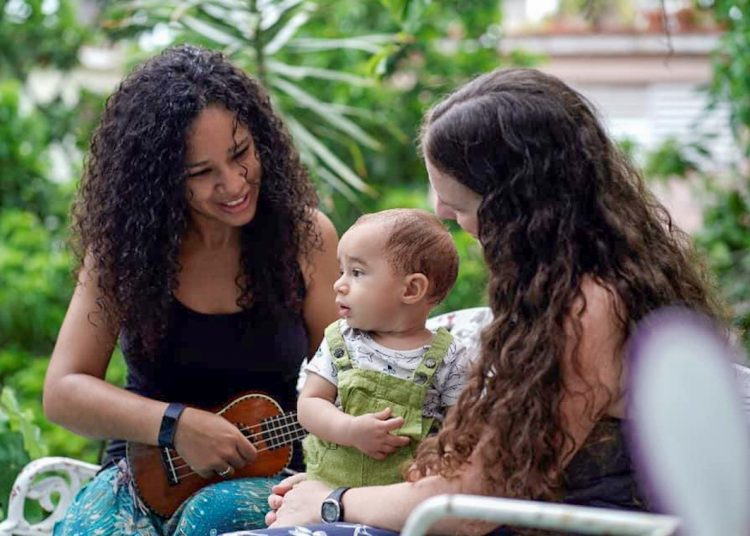Help us keep OnCuba alive here
The Cuban Ministry of Justice (MINJUS) this week issued a birth certificate that recognizes two mothers of a child, which is an unprecedented event in Cuban law.
After almost a year of beginning the process to register their son in the Cuban Civil Registry, this Thursday Dachelys Valdés and Hope Bastian obtained the birth certificate in which both appear as mothers, reported the blog Q de Cuir.
The birth certificate, issued in Havana, argues that “the registration is under both mothers as it is a case of double maternity, with legal support in article 7 of the Constitution of the Republic of Cuba, which also recognizes the right to form a family, whatever its form of organization and safeguards the best interests of the child and his/her right to be registered.”
Paulo Cesar Bastian was born in Florida, where the mothers made use of the assisted reproduction service, an almost impossible procedure for a couple of women in Cuba.
In the United States, the family started the process to register Paulo as the son of a Cuban citizen born outside the island.
Without acknowledging marriage between women, the MINJUS ruled that it approved putting “mother and mother” as in the original birth certificate, issued at the Florida hospital where he was born.
“According to the ruling, filiation is a legal element based on biology and our laws do not recognize a child of two mothers, but at the same time it admitted that the Cuban Civil Registry Law dates back more than 30 years, so it is not in line with current family dynamics,” explains Valdés, quoted by the source.
The document, in the mothers’ opinion, confirms that the laws act in the best interests of the child, that the Cuban Constitution protects the fact that people form their families as they wish and that they cannot be discriminated against for any reason.
For Hope, this “is a very important step because it is the first time that the Cuban State recognizes that there can be children with two mothers. Today the State recognizes that Cuban families have many different constructions, that they are legitimate and legal.”









